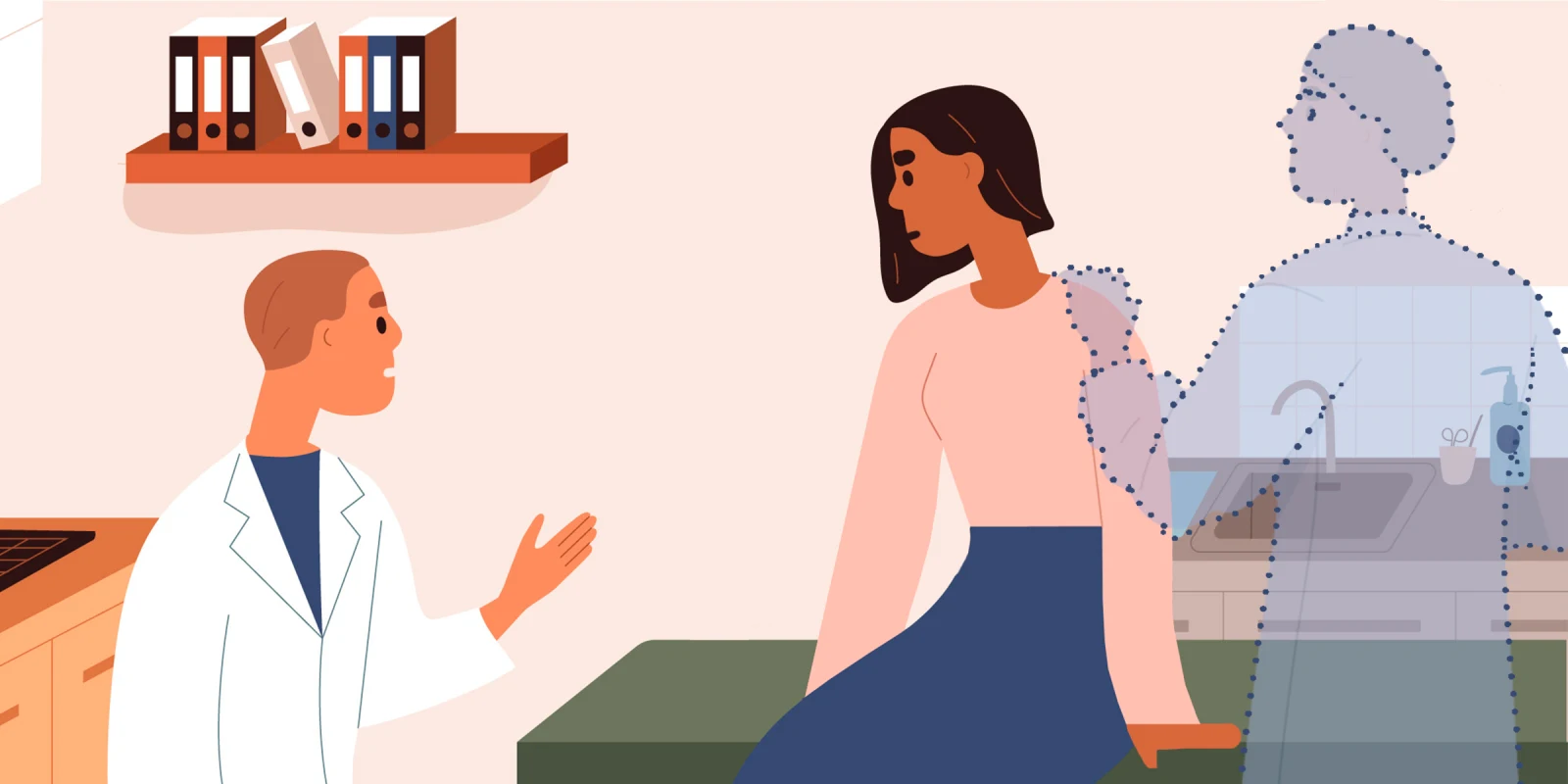“I’ve been on atenolol forever. Is there anything better for my blood pressure?” It was a good question. I reconsidered my new patient, scrutinizing his appearance and affect before examining the copy of his most recent office note. His old PCP, Dr. Smith, had recently retired. The note was short and to the point — a handwritten scrawl where the words “HTN — stable many years” were barely discernible under the “assessment” portion. Reflecting on how much documentation has changed since Dr. Smith entered practice, I began the conversation of whether it was worth it to switch my new patient’s medicines — and became aware of the presence of a third, unseen person in the room, the ghost of Dr. Smith.
One of the great challenges of a primary care doctor is the inheritance of a patient panel from a predecessor. Historically, this was a gradual process of “getting to know you” under the mentorship of a wise colleague who you worked with for years prior to the ceremonial turnover of their practice. Their patients would gradually become accustomed to your presence, perhaps through acute visits or “filling in” for the more senior partner when they were out of office. When it was time for the good doctor to retire, their patients would, through a combination of comfort and inertia, roll over to your panel along with the keys to the office suite. Somewhere along the way, you’d have learned much about the senior doctor’s patients, prescribing habits, and general demeanor — hopefully ensuring a smooth passage of the torch from one generation to the next.
More recently, the process looks quite a bit less ceremonious. The majority of patients I “inherit” as a young doctor have not had a doctor for years due to difficulty finding a new physician, or if they have had a “doctor,” it’s been a cobbled together mess of locums, urgent care or telehealth physicians, or practice partners of their old doctor who are too busy to add them to their “permanent” panel. In a sense, they are adrift, and I am too — not knowing who they previously saw, and what conversations they’ve had, I’m left with ghosts of doctors past to contend with when taking on their patients.
Take Dr. Smith, for instance. I have never met Dr. Smith. By all accounts he was much-loved by his patients. They tell me I’m “just like him,” and that “he really got to know me.” In his older years, I know that he stopped going to the hospital; in his younger ones, he practiced obstetrics and delivered many of his patients’ children. His notes are sparse, in a jerky shorthand with handwriting that is somehow even worse than mine (he never did get around to switching over to the EMR before he retired). He was fond of few medicines, and tended to stick with the ones he knew, which for the most part succeeded in “getting the job done.”
How do I know this, not having ever met Dr. Smith? Mostly by the things his patients tell me and abstraction from his notes. It strikes me how, though long since retired, his words and actions still influence the present day. His patients, now my own, nod in agreement when I hit on a point he must have raised in the past. “He also used to get on me about the smoking.” They frown or furrow their brow when I bring up something unfamiliar. “He never mentioned that. Why would he not if it was so important?” The enduring power of his words, some 50 years after the fact in some cases, is still felt in my 21st century exam room.
The ghosts of those before us have a more profound impact than we know. I think often of what people will say of me as a doctor after I’m no longer their doctor. Will the things I say today echo in their mind for years after? Will a young doctor someday critique my med list without knowing these were the best tools I had available at the time? Will my patients feel confident, when I have gone, that they will find someone else to build a relationship with whom they can trust with their struggles, their hopes, their dreams for the future, and their past? I don’t know the answers to these questions, and I can’t know. In thinking of these things, though, I have decided that most of the time, I give grace to the ghosts of doctors past. After all, someday, I will be one.
How do you honor — or challenge — the ghosts in your exam room? Share in the comments.
Dr. Brennan Kruszewski is an internal medicine physician in Hudson, Ohio. He is passionate about transforming primary care. He enjoys spending time outdoors, especially biking the trails of Northeast Ohio. He is active on social media, and blogs at his personal website. Dr. Kruszewski was a 2024–2025 Doximity Op-Med Fellow and continues as a 2025–2026 Doximity Op-Med Fellow. Opinions expressed here are his own and not the opinions of his employer.
*All names and identifying information have been modified to protect patient privacy.
Image by GoodStudio / Shutterstock







